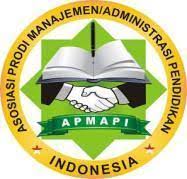Merdeka Belajar: Upaya Peningkatan Mutu Pembelajaran di Sekolah/Madrasah
Abstract
Full Text:
PDFReferences
D. J. P. Tinggi (2020). Buku Panduan Merdeka Belajar-Kampus Merdeka. Direktorat Jenderal Pendidikan Tinggi Kementerian Pendidikan dan Kebudayaan. Din Wahyudin. (2014). Manajemen Kurikulum, Bandung: PT. Remaja Rosda Karya. E. S. Sherly. Dharma dan H. B. Sihombing. (2020). Merdeka Belajar: Kajian Literatur. UrbanGreen Conference Proceeding Library. Eko Risdianto. (2019). Kepemimpinan dalam Dunia Pendidikan di Indonesia di Era Revolusi Industri 4.0. Hamidulloh Ibda dan E. Rahmadi. (2018). Penguatan Literasi Baru Pada Guru Madrasah Ibtidaiyah Dalam Menjawab Tantangan Era Revolusi Industri 4.0. M. Fahim Tharaba. (2019). “Kajian Pemikiran Integrasi Keilmuan Universitas Islam Negeri (UIN) Maulana Malik Ibrahim Malang Melalui Ulul Albab.” Proceeding of International Conference on Islamic Education (ICIED). p. 126-142, dec. 2019. Faculty of Tarbiyah and Teacher Training, UIN Maulana Malik Ibrahim Malang. M. Fahim Tharaba. (2011). Kampus Islam Sebagai Agent Of Change. ULUL ALBAB, Jurnal Studi Islam ULUL ALBAB, Vol 12, No 1, UIN Maulana Malik Ibrahim Malang. M. Fahim Tharaba. (2019). Membangun Budaya Mutu Sebagai Implementasi Penjaminan Mutu Dalam Pengembangan Pendidikan Islam Di Indonesia. Diakses dari http://repository.uin-malang.ac.id/4722/1/4722.pdf M. Rembangy. (2010). Pendidikan Transformatif: Pergulatan Kritis Merumuskan Pendidikan di Tengah Pusaran Arus Globalisasi. Teras. M. Saleh. (2020). Merdeka Belajar di Tengah Pandemi Covid-19. Prosiding Seminar Nasional Hardiknas. M. Yusro. (2018). Strategi Peningkatan Mutu Akreditasi Sekolah Menengah Kejuruan (SMK) Memasuki Era Revolusi. Mozzain Arifin. (2005). Pengembangan Kurikulum. Jakarta: Pustaka Karya. Muda. D. A. K. K. I. (n.d.). Surat Keputusan. Mulyasa. (2011). Menjadi Guru Profesional. Bandung: PT. Remaja Rosdakarya. Nadiem Makarim. (2019). Kemendikbud.go.id. Sandi Wahyu Utomo. (2017). Manajemen Kepala Sekolah dalam Meningkatkan Kompetensi Guru (Studi Kasus di SMA Muhammadiyah 7, Yogyakarta). Sudarwan D. (2007). Visi Baru Manajemen Sekolah. Jakarta: Bumi Aksara.
DOI: https://doi.org/10.18860/rosikhun.v1i1.13905
Refbacks
- There are currently no refbacks.
Copyright (c) 2021 Muhammad Fahmi Rahmansyah

This work is licensed under a Creative Commons Attribution-ShareAlike 4.0 International License.
Jl. Raya Ir. Soekarno No.34 Dadaprejo, Pendem, Junrejo, Kota Batu, Jawa Timur













